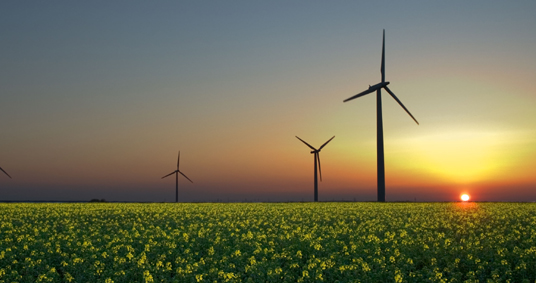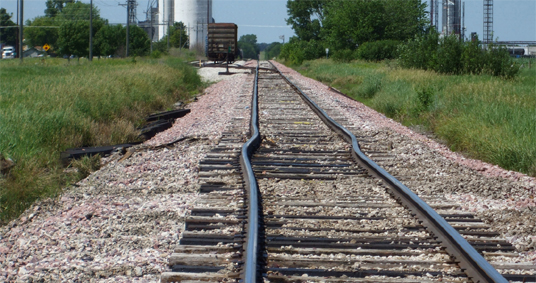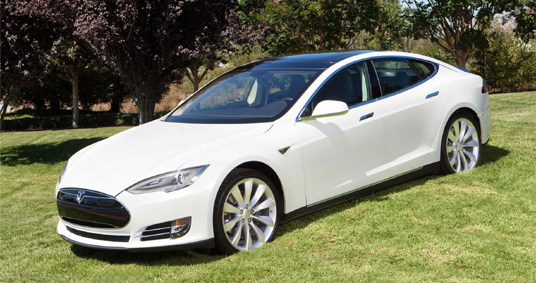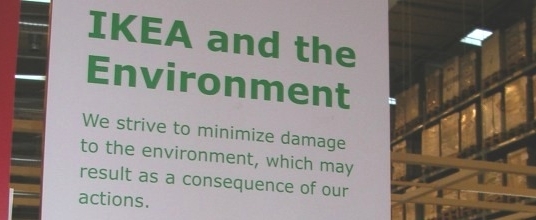Climate change disrupts the retail industry by creating volatility in the business environment, which impacts resource availability and prices, as well as stimulating regulatory shifts. Perhaps the most vulnerable part of the retail business is the supply chain, particularly for sources and infrastructure located in the developing world.
Vulnerabilities
The main vulnerabilities to the retail supply chain include the cost and availability of secure energy sources and water, along with weather events that disrupt the transportation of goods from Asia to the US and the EU. Companies that have just-in-time inventory systems may rely heavily on air transport for the rapid shipment of goods, but air transport alone contributes more than 3% of global greenhouse gas emissions. Increasingly, national governments are taking steps to limit those emissions, including here in the US, despite political opposition.
 |
Even companies that already have sustainability strategies in place are finding that their initial efforts are not suitable for the long term, since ecological changes take place over time. What works today may not be effective a few years down the line.
For example, some companies that switched from carbon fuels to renewable hydropower later faced energy shortages due to reduced water runoff associated with drought. US businesses that reduced their use of air transport in favor of rail freight recently learned of a phenomenon called sun kinks, in which intense heat causes tracks to buckle and trains to derail.
 |
Also, changes made at one point in the supply chain may spark a domino effect, causing problems in another. One example is unanticipated changes in substitute materials. If, say, enough manufacturers switch from synthetic fibers — dependent on petrochemicals — to cotton, the price of cotton will rise along with demand. And this also creates a new vulnerability because the cotton crop is affected by floods, extreme heat and other unpredictable weather conditions.
Opportunities
Depending on your point of view, the challenges posed by climate change may also present some opportunities. Agile, forward-looking companies have an opportunity to gain competitive advantages by using new technologies and business models. Smart sustainability strategies can deliver benefits in brand prestige, increased sales, cost savings and investment capital. Take these examples:
| • Wal-Mart and Tesco have been applauded for addressing climate change throughout their value chains and there is evidence that consumers have responded.
• Upstart Tesla Motors became California’s third-bestselling luxury car in 2013, pushing BMW to speed up development of its own luxury electric vehicle. |
 |
| • Major retailer Marks & Spencer estimates that its global supply chain accounts for about 80% of its carbon footprint. Through a sustainability initiative called Plan A, M&S sources sustainable packaging from Sweden, works with fish suppliers on marine stewardship, and has set up eco-factories in the UK, Turkey and China, among other activities. It has paid off: In 2010 and 2011 alone, Plan A delivered £70 million in net benefits, which M&S has reinvested in its sustainability work. |
Some companies have formed business coalitions, whose strength lies in their ability to scale through the pooling of finances, sharing of best practices, and incubation of innovation.
| • Richemont, the world’s third largest luxury goods company, is partnering with IKEA, the world’s largest furniture-maker, to take the lead on developing internal corporate carbon pricing structures in which all of a company’s business groups pay a fee for carbon. That money is reinvested into sustainable energy. |
 |
| • Denmark-based companies DONG Energy and Novo Nordisk formed a partnership in which DONG Energy helped Novo Nordisk improve energy efficiency in exchange for investment of energy savings into DONG’s wind farm. Novo Nordisk saved about US$12 million between 2007 and 2012. The company’s investments made the wind farm financially feasible. |
Alex Niemeyer, a director at McKinsey, sums it up:
“One thing that has structurally changed in the world is that historic supply chains tended to be more stable. They dealt with normal volatility…not radical events like Fukushima or the Iceland volcano. Today’s supply chains need to be set up to deal with big volatility all the time. And that doesn’t just mean risk—that also means opportunity to take advantage when a competitor is affected or when a new market opens up.”
About Gevril Group
 Gevril Group, watchmaker and wholesale watch distributor, is the exclusive U.S. agent for exquisitely designed and crafted European luxury and fashion watch brands, distributing and servicing some of the best affordable luxury and Swiss watches and trendy fashion watches. Gevril Group also operates a full-service watch repair, staffed by master Swiss watchmakers. Contact Gevril Group by email or by calling 845-425-9882.
Gevril Group, watchmaker and wholesale watch distributor, is the exclusive U.S. agent for exquisitely designed and crafted European luxury and fashion watch brands, distributing and servicing some of the best affordable luxury and Swiss watches and trendy fashion watches. Gevril Group also operates a full-service watch repair, staffed by master Swiss watchmakers. Contact Gevril Group by email or by calling 845-425-9882.
Join the conversation! Follow Gevril Group on Facebook, Twitter and LinkedIn.
Please subscribe to the Gevril Group newsletter and blog digest.

